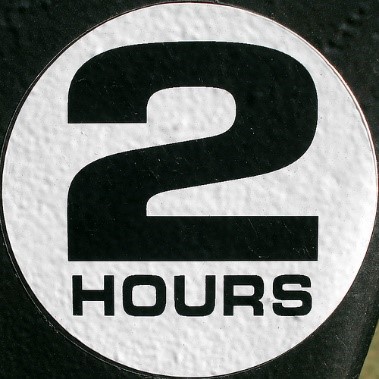 Ever thought what life would be like if there were fewer hours in the day? What if there were only 22 hours in a day and the standard work day was six hours? What would you change, give up, or do less of?
Ever thought what life would be like if there were fewer hours in the day? What if there were only 22 hours in a day and the standard work day was six hours? What would you change, give up, or do less of?
Or what if there were more hours in a day? What would you do if you had an extra two hours every day? Give yourself some downtime? Get more work done? Spend more time with family or friends? Exercise?
Based on current statistics, the typical worker in today’s hectic work environment could use some downtime. Over 50 percent report dealing with high levels of stress. Getting an extra couple of hours a day to get their work done would be a real blessing. Or would it?
How many people would use those extra hours on email? Attend more meetings? Review more reports, squeeze in more calls, or start more projects? If so, would having more hours in the day really be beneficial? Or would it just lengthen the work day and create more stress?
Many professionals shudder to think about spending more time in meetings or on email. If they had to work longer hours, most would prefer to use the extra time for themselves, at least to get caught up or do that which they currently feel rushed to do. Or to allow time to act on ideas they never have time to act on.
What would you do if you had more work time to do with whatever you wanted? Would you do more of what you do now, perhaps at a less frenetic pace, or would you do something different?
Despite people’s best intentions in how they would like to use more time, most would revert back to what they currently do. Studies on human behavior, including failed attempts to lose weight and other failed New Year’s resolutions, are clear. People may want to spend more time in strategic activities, i.e. those that have the potential to pay big dividends in the future, but end up doing their existing day-to-day tactical activity. The status quo is a comfortable place. Habits are hard to break. People generally keep doing what they currently do, even when they know it isn’t the best. People think about change a lot, but rarely act on it. Change is hard, even when the benefits are obvious.
If you are like most professionals, the number of hours you work a day is a choice. So is how you spend your time when working. The extent to which you focus on tactical versus strategic work is within your influence if not your direct control. There are at least a couple of hours a week you could find to get off the treadmill of busyness as usual and shift from keeping up to getting ahead. You could choose to allocate more time to doing what you deem important and strategic, not just urgent and necessary.
If doing more important and strategic work sounds appealing, consider which of the following you would spend more time doing:
- Act on your backlog of new ideas
- Brainstorm and plan your future
- Address current issues at their root instead of putting temporary fixes in place
- Contact past acquaintances
- Create new business opportunities, offerings, partnerships, or prospects
- Upgrade, maintain, or clean up your facilities and assets
- Get organized personally
- Improve your current methods, processes, or business in some way
- Seek wise insights from others
- Inform and update others
- Build deeper or broader relationships
- Encourage, recognize, or retain your top performers
- Develop and improve yourself
- Develop and build the skills of your team
- Document and record valuable information for future reference
- Relax and practice mindful reflection
- Exercise to build your physical fitness, mental fitness, and energy level
Consider if any of these activities would be more valuable than the two hours of tactical activity you might otherwise do. If their value is higher than other work, maybe it’s time to treat the work day or week as having just gotten two hours shorter in terms of the tactical work you do and give the other two hours to the strategic work you know is more important.
